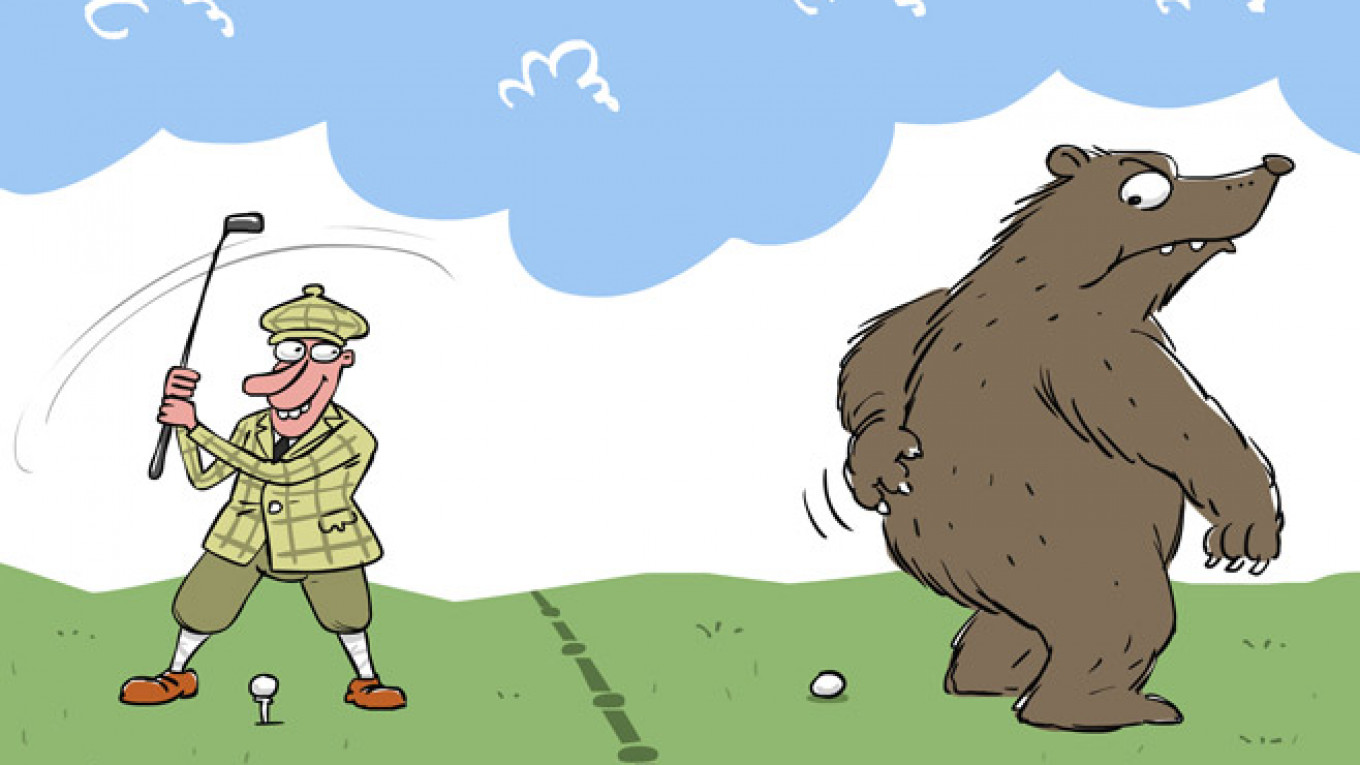Russia and the West are once again locked in a bickering match marked by mutual accusations and name-calling. At the same time, both sides consider themselves the very acme of civilization and their opponents little more than barbarians. I don't know about you, but turning to history usually helps me make sense of such situations.
Most Russians indignantly reject the accusation of barbarism, although it is interesting to note that in 1854 Russian philosopher and expert on Western society Alexander Herzen agreed that such a label was not far amiss when applied to his countrymen. True, he also noted that Russians, with their "barbaric" point of view, tend to see the more unpleasant side of European life.
In a letter to the publisher of the French magazine "L'Homme," Herzen wrote: "The famous saying that 'If you scratch a Russian you will find a barbarian' is entirely fair. It is difficult to say who comes out looking better … this barbarian is the most embarrassing observer of Europe. The Russian has only bitter reproach for Europe. … The problem is that we [Russians] approach Europe with firm belief in our own ideals about life.
"We know Europe from its books, literature, its fine attire, by its purified distractions, by its prominent and proven ideas, by issues pertaining only to the superficial aspects of life and by certain events that are not representative of Europe as a whole. All of that together comprises the most radiant one-fourth of European life.
"The other dark three-fourths are not evident from a distance, although up close they are constantly before your eyes. Russian laws begin with the insulting message, 'the Tsar decrees' and end with the primitive "so be it." Your [France's] decrees carry a duplicitous lie by thundering out the republican motto while intoning the name of the French people. In exactly the same way, the corpus of laws is directed against the individual … but we know that our laws are atrocious, while you do not."
A lot of time has passed since then, and now, when the Russian people have had the opportunity to travel to the West and see it with their own eyes and not through the pages of a glossy magazine, their reactions are much the same as those Herzen described so long ago. Some conclude that their fellow Russians are not so barbaric after all, while others come away convinced that Russians are still just as barbaric as ever.
If to gauge the degree of true civilization and morality not by the number of new gadgets a people produce, but by their tolerance and ability to really hear and understand others, then both sides in this question lean more toward barbarity. In Russia certainly, the concept of "otherness," "outsider" and "alien" is alive and well, largely unchanged since the days our ancient ancestors ran barefoot with the mammoths.
Of course, stereotypes, like stones, can eventually erode and disappear, but it takes time. In the second half of the 20th century, German writer Heinrich Böll still spoke of "literary prejudices" and labels found in Western writing.
"Russians are invariably bearded, obsessed by passions and tend to be dreamers," he wrote. "The Dutch are as clumsy and as naive as children; the English are boring or a little too "Oxfordish"; the French are excessively sensual but incredibly cerebral; Germans are either completely consumed by music or continually consuming sauerkraut; as a rule, Hungarians are insanely passionate, mysterious and red-hot, like the filament of an electric lighter." And all of this was considered very tactful and politically correct.
What's more, those stereotypes represent enormous progress. You cannot imagine what people wrote about each other in the past. All foreign observers of the past wrote roughly the same thing about life in Moscow, commenting — and justifiably so — on the servile condition of the people and the despotism of the tsar.
Even then, the West expressed an obvious interest in the huge and promising Russian market. All the personal memoirs of foreigners who lived in Russia then inevitably contain horror stories about the Russian winter, but more importantly, they devote a great deal of space to the nature of the Russian people. For the most part, they speak of Russians' rudeness, and often mistake it for simplicity of character.
But before any Russian takes offense, they should read the observations that travelers of the same period made of other European countries and their inhabitants. Then everything will fall into place. Medieval Polish authors who loved to malign the Russians, spoke no better of the Swedes, saying they had "herrings in place of their heads."
For their part, the Scandinavians were astounded by the "conceit, quarrelsomeness and slovenliness" of the people of the Polish-Lithuanian Commonwealth. What's more, the Swedes were convinced that the Poles spoke with the devil and murdered children and placed their severed heads on church altars. By comparison, Böll's comment that Hungarians are like the "red-hot filament of an electric lighter" represents real progress.
Of course, the mutual recrimination of today will also become part of the past. However, my concern is that this ship on which mankind is sailing will likely encounter new and dangerous obstacles because each of the world's peoples continues to hold unquestioning confidence in their own intellectual and moral superiority — and it looks as though this habit will long endure.
Pyotr Romanov is a journalist and historian.
A Message from The Moscow Times:
Dear readers,
We are facing unprecedented challenges. Russia's Prosecutor General's Office has designated The Moscow Times as an "undesirable" organization, criminalizing our work and putting our staff at risk of prosecution. This follows our earlier unjust labeling as a "foreign agent."
These actions are direct attempts to silence independent journalism in Russia. The authorities claim our work "discredits the decisions of the Russian leadership." We see things differently: we strive to provide accurate, unbiased reporting on Russia.
We, the journalists of The Moscow Times, refuse to be silenced. But to continue our work, we need your help.
Your support, no matter how small, makes a world of difference. If you can, please support us monthly starting from just $2. It's quick to set up, and every contribution makes a significant impact.
By supporting The Moscow Times, you're defending open, independent journalism in the face of repression. Thank you for standing with us.
Remind me later.






